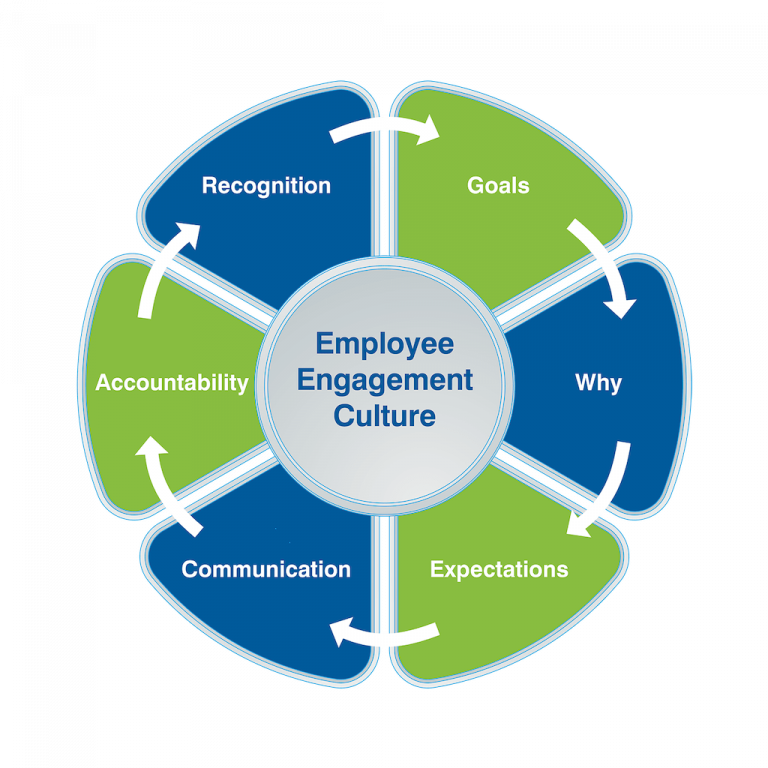The Impact Of Effective Middle Management On Company Culture And Employee Well-being

Table of Contents
The Role of Middle Managers in Fostering a Positive Company Culture
Middle managers play a pivotal role in shaping the company culture. Their actions and leadership styles directly influence the daily experiences of their teams, creating either a positive and productive environment or one fraught with negativity and low morale. Effective middle managers understand this and actively work to cultivate a positive and supportive atmosphere.
Championing Open Communication and Collaboration
Open communication is the lifeblood of a healthy company culture. Middle managers act as conduits for information, ensuring transparency and open dialogue between upper management and front-line employees. This two-way communication is essential for building trust and fostering collaboration.
- Regular team meetings: Facilitating regular meetings provides a platform for updates, discussions, and addressing concerns.
- Active listening: Truly listening to employee feedback and concerns demonstrates respect and encourages open dialogue.
- Providing feedback channels: Establishing clear channels for feedback – anonymous surveys, suggestion boxes, regular one-on-ones – ensures all voices are heard.
- Transparent communication regarding company goals and performance: Sharing company performance data and strategic goals helps employees understand their role in the bigger picture.
Promoting a Culture of Recognition and Appreciation
Feeling valued is a fundamental human need. Effective middle managers actively acknowledge and reward employee contributions, fostering a sense of value and belonging. This recognition significantly boosts morale and enhances employee engagement.
- Regular employee feedback: Providing regular, constructive feedback, both positive and developmental, helps employees understand their strengths and areas for improvement.
- Celebrating achievements: Publicly acknowledging and celebrating both individual and team accomplishments boosts morale and reinforces positive behavior.
- Public recognition of contributions: Showcasing employee contributions in team meetings, company newsletters, or internal communications fosters a sense of pride and accomplishment.
- Offering performance-based rewards and incentives: Providing incentives, such as bonuses, promotions, or extra time off, for exceptional performance motivates employees and reinforces desired behaviors.
Creating a Supportive and Inclusive Work Environment
Creating an inclusive workplace where every employee feels valued and respected is paramount. Effective middle managers champion diversity and inclusion, ensuring fairness and respect for all team members, regardless of background or position.
- Implementing diversity and inclusion initiatives: Actively participating in and promoting company diversity and inclusion initiatives fosters a sense of belonging for all employees.
- Actively addressing workplace bias: Addressing any instances of bias or discrimination promptly and fairly demonstrates a commitment to creating a fair and equitable workplace.
- Promoting equal opportunities: Ensuring fair and equal opportunities for all employees, regardless of background or personal characteristics, fosters trust and respect.
- Fostering a sense of belonging: Creating a welcoming and supportive environment where all employees feel comfortable being themselves contributes to a positive and productive work environment.
The Influence of Middle Management on Employee Well-being
Effective middle management significantly impacts employee well-being. By creating a supportive and understanding work environment, middle managers can reduce stress, boost motivation, and enhance overall job satisfaction.
Reducing Stress and Burnout
Stress and burnout are significant issues in today's workplace. Effective middle managers understand this and work to mitigate sources of stress within their teams.
- Implementing flexible work arrangements: Offering flexible work options, such as telecommuting or flexible hours, can significantly reduce stress and improve work-life balance.
- Setting realistic deadlines: Setting achievable deadlines and avoiding unrealistic expectations prevents employee burnout and fosters a sense of accomplishment.
- Providing adequate resources and support: Ensuring teams have the necessary resources and support to complete their tasks effectively reduces stress and frustration.
- Actively addressing employee concerns: Taking the time to listen to and address employee concerns demonstrates care and support, reducing stress and fostering trust.
Improving Employee Engagement and Motivation
Employee engagement is directly tied to productivity and job satisfaction. Effective middle managers boost engagement and motivation by fostering a positive work environment and providing opportunities for growth.
- Regular one-on-one meetings: Regular check-ins with individual team members allow for open communication, feedback, and addressing any concerns.
- Providing training and development opportunities: Investing in employee training and development demonstrates a commitment to their growth and career advancement.
- Facilitating career progression: Creating opportunities for career advancement and growth within the company fosters loyalty and motivation.
- Actively soliciting employee feedback: Regularly soliciting employee feedback and acting on it demonstrates that management values their input and opinions.
Boosting Employee Productivity and Performance
A supportive and well-managed team is a productive team. Effective middle managers contribute significantly to improved performance metrics through effective leadership and support.
- Setting clear goals and expectations: Clearly defining roles, responsibilities, and performance expectations helps employees understand their contributions and focus their efforts.
- Providing regular performance feedback: Providing regular and constructive performance feedback helps employees identify areas for improvement and maintain high performance levels.
- Offering mentorship and coaching: Providing mentorship and coaching opportunities helps employees develop their skills and advance their careers.
- Promoting continuous improvement: Encouraging a culture of continuous improvement motivates employees to constantly seek ways to enhance their performance and contribute to the team's success.
Developing Effective Middle Management Skills
Investing in the development of effective middle management is crucial for organizational success. This investment translates directly into improved company culture, higher employee engagement, and increased productivity.
Importance of Leadership Training and Development
Leadership training equips middle managers with the necessary skills to excel in their roles and effectively lead their teams.
- Leadership workshops: Workshops focusing on leadership styles, communication, conflict resolution, and team building provide valuable skills.
- Coaching programs: One-on-one coaching provides personalized support and guidance to help middle managers develop their leadership capabilities.
- Mentorship opportunities: Pairing experienced leaders with aspiring middle managers offers valuable learning and guidance.
- Access to relevant resources and online learning platforms: Providing access to online courses, books, and other resources allows for continuous learning and professional development.
The Role of Emotional Intelligence in Middle Management
Emotional intelligence is essential for effective middle managers. It allows them to navigate interpersonal dynamics, understand their team's needs, and create a supportive work environment.
- Active listening: Actively listening to employee concerns and feedback builds trust and strengthens relationships.
- Empathy: Understanding and sharing the feelings of team members fosters a sense of connection and support.
- Conflict resolution skills: Effectively resolving conflicts within the team minimizes disruption and maintains a positive work environment.
- Self-awareness: Understanding one's own strengths and weaknesses allows for effective self-management and leadership.
- Ability to manage emotions: Managing one's own emotions and responding appropriately to the emotions of others is crucial for effective leadership.
Utilizing Data-Driven Decision Making
Empowering middle managers to use data to inform decisions improves team performance and resource allocation.
- Access to relevant performance data: Providing access to relevant performance data empowers middle managers to make informed decisions.
- Training in data analysis: Training in data analysis equips middle managers to interpret data effectively and identify key trends.
- Data visualization techniques: Using data visualization techniques helps middle managers communicate data effectively to their teams.
- Using data to drive strategic decision-making: Using data to inform strategic decisions ensures that decisions are based on evidence and lead to improved outcomes.
Conclusion
The impact of effective middle management on company culture and employee well-being is undeniable. By fostering open communication, promoting inclusivity, and investing in leadership development, organizations can cultivate a positive work environment that boosts employee engagement, productivity, and overall organizational success. Investing in effective middle management is not merely an expense, but a strategic investment in the future of your company. Prioritize the development and support of your middle managers to cultivate a thriving company culture and enhance employee well-being. Start building your team of effective middle managers today!

Featured Posts
-
 Padres Pregame Arraez And Heyward Lead Lineup In Sweep Bid
May 15, 2025
Padres Pregame Arraez And Heyward Lead Lineup In Sweep Bid
May 15, 2025 -
 Paddy Pimblett On Dustin Poiriers Retirement His Take And Potential Implications
May 15, 2025
Paddy Pimblett On Dustin Poiriers Retirement His Take And Potential Implications
May 15, 2025 -
 Nhl Draft Lottery Rules Changes Leave Fans Frustrated And Confused
May 15, 2025
Nhl Draft Lottery Rules Changes Leave Fans Frustrated And Confused
May 15, 2025 -
 New Report Highlights Widespread Drinking Water Contamination Across America Millions At Risk
May 15, 2025
New Report Highlights Widespread Drinking Water Contamination Across America Millions At Risk
May 15, 2025 -
 Crystal Palace Vs Nottingham Forest Resumen Y Goles Del Partido En Directo
May 15, 2025
Crystal Palace Vs Nottingham Forest Resumen Y Goles Del Partido En Directo
May 15, 2025
